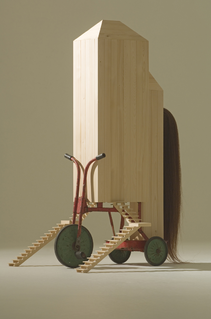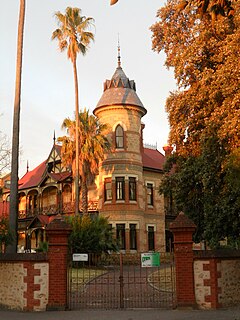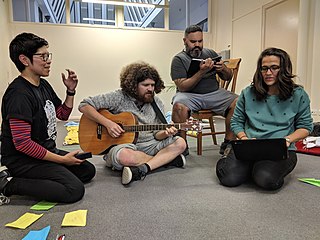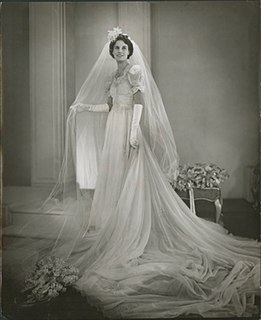Related Research Articles
The Adelaide Fringe, formerly Adelaide Fringe Festival, is the world's second-largest annual arts festival, held in the South Australian capital of Adelaide. Between mid-February and mid-March each year, it features more than 7,000 artists from around Australia and the world. Over 1,300 events are staged in hundreds of venues, which include work in a huge variety of performing and visual art forms. The Fringe begins with free opening night celebrations, and other free events occur alongside ticketed events for the duration of the festival.

The Adelaide Festival of Arts, also known as the Adelaide Festival, an arts festival, takes place in the South Australian capital of Adelaide in March each year. Started in 1960, it is considered one of the world's major celebrations of the arts, and a pre-eminent cultural event in Australia.
Music of Adelaide includes music relating to the city of Adelaide, South Australia. It includes all genres of both live and recorded music by artists born or living in the city, live music events happening in the city, and other aspects of the music industry relating to Adelaide.

The Art Gallery of South Australia (AGSA), established as the National Gallery of South Australia in 1881, is located in Adelaide. It is the most significant visual arts museum in the Australian state of South Australia. It has a collection of almost 45,000 works of art, making it the second largest state art collection in Australia. As part of North Terrace cultural precinct, the Gallery is flanked by the South Australian Museum to the west and the University of Adelaide to the east.
Patch Theatre Company, formerly New Patch Theatre, is an Australian theatre company founded in 1972 and based in Adelaide, South Australia, which performs works for young children.

Adelaide Festival Centre, Australia's first multi-purpose arts centre and the home of South Australia's performing arts, was built in the 1970s, designed by Hassell Architects. The Festival Theatre opened in June 1973 with the rest of the centre following soon afterwards. The complex includes Festival Theatre, Dunstan Playhouse, Space Theatre and several gallery and function spaces. Located approximately 50 metres (160 ft) north of the corner of North Terrace and King William Road, lying near the banks of the River Torrens and adjacent to Elder Park, it is distinguished by its two white geometric dome roofs, and lies on a 45-degree angle to the city's grid.
Arts South Australia was responsible for managing the South Australian Government's funding for the arts and cultural heritage from about 1996 until late 2018, when it was progressively dismantled, a process complete by early 2019. Most of its functions were taken over by the Department of the Premier and Cabinet under Premier Steven Marshall.
The State Theatre Company of South Australia (STCSA), branded State Theatre Company South Australia, formerly the South Australian Theatre Company (SATC), is South Australia's leading professional theatre company, and a statutory corporation. It was established as the official state theatre company by the State Theatre Company of South Australia Act 1972, on the initiative of Premier Don Dunstan.
Windmill Theatre Co, established in 2002 as a South Australian Government initiative, is Australia's flagship professional theatre company for child and young adult audiences. As of 2019 artistic director is Rosemary Myers.
Anthony Steel is an English arts administrator who was the first general manager of the Adelaide Arts Festival.

Greer Honeywill is an Australian conceptual artist. Her work covers sculptural conventions, autobiography and critical thinking.
The Adelaide Festival Awards for Literature comprise a group of biennially-granted literary awards established in 1986 by the Government of South Australia, announced during Adelaide Writers' Week, as part of the Adelaide Festival. The awards include national as well as state-based prizes, and offer three fellowships for South Australian writers. Several categories have been added to the original four.
Chris Tugwell is an Australian dramatist, screenwriter and author of English descent. Best known as a playwright, his most successful play was X-Ray, which he also produced. He was originally a dancer and actor, performing with some of Australia's most prominent Theatre-in-Education companies, before turning to writing full-time. Tugwell is also a teacher of screenwriting and the author of the textbook Dinosaur Theory.
Katrina Anne-Marie Sedgwick is the Australian CEO and director of the Australian Centre for the Moving Image.

Carclew is a Federation style mansion built in 1897, located in the Adelaide suburb of North Adelaide, overlooking the Adelaide city centre city from Montefiore Hill. The name is now better known as the cultural organisation dedicated to artistic development of young people, now known simply as Carclew, which has been housed in the building since 1971.
D'Faces of Youth Arts is a community youth arts organisation based in Whyalla, South Australia. It provides workshops and activities for young people aged 7 to 27 in theatre, dance, visual arts and music and members participate in a broad range of public events including performances, festivals and parades. The organisation celebrated its 21st anniversary in 2016. As of 2018 the organisation is funded by Carclew, plus project specific partners and sponsors.
The South Australian Ruby Awards, also known as the Ruby Awards, are annual awards which recognise outstanding achievement in South Australia’s arts and culture sector. They were named in honour of arts champion Dame Ruby Litchfield (1912–2001).

ActNow Theatre is a theatre company based in Adelaide, South Australia. Founded in 2007, it is a community-based company whose work focuses on social justice issues and techniques. From 2007 until 2020, the artistic director was Edwin Kemp Attrill.
The History Trust of South Australia, sometimes referred to as History SA, was created as a statutory corporation by the History Trust of South Australia Act 1981, to safeguard South Australia’s heritage and to encourage research and public presentations of South Australian history. It operates three museums in the state: the Migration Museum, the National Motor Museum and the South Australian Maritime Museum. It runs the month-long South Australia's History Festival annually, and manages the Adelaidia and SA History Hub websites. It also manages, in collaboration with the State Library of South Australia, the Centre of Democracy.

Ruby Beatrice Litchfield was an Australian theatre director, board member and community worker.
References
- ↑ "40 years of education programs for schools at the Adelaide Festival Centre" Adelaide Festival Centre, South Australia (2013)
- 1 2 "About". DreamBig. Retrieved 7 September 2019.
- ↑ Hanifie, Sowaibah (18 May 2017). "Dream Big Children's Festival launches in Adelaide to replace 'Come Out' in changing times". ABC News. Australian Broadcasting Corporation. Retrieved 7 September 2019.
- ↑ "Come Out at Carclew". Carclew. Retrieved 8 September 2019.